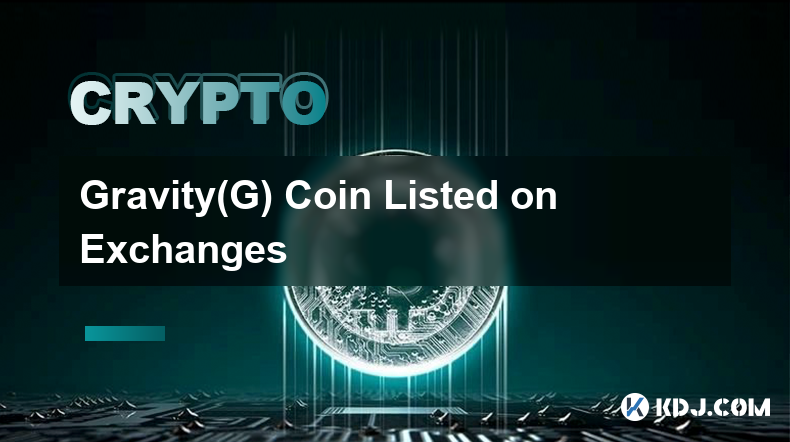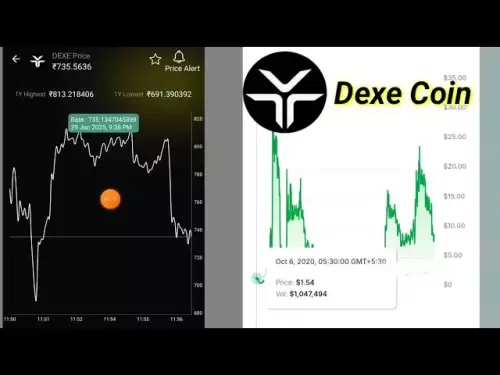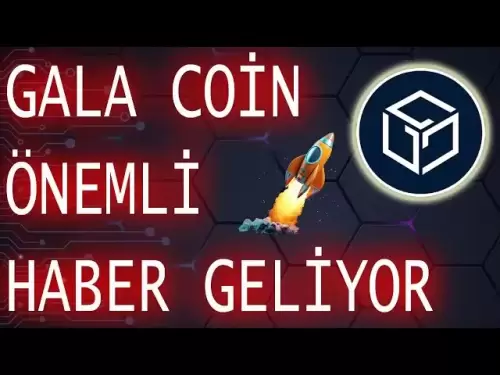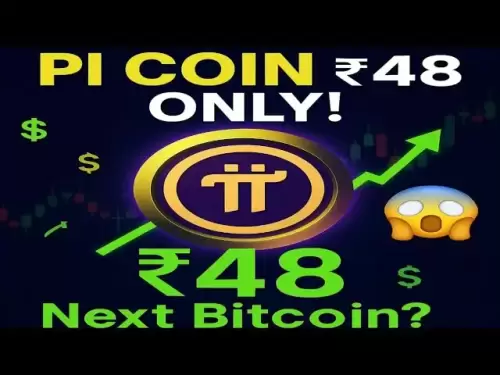-
 Bitcoin
Bitcoin $108,165.4587
0.78% -
 Ethereum
Ethereum $2,456.3517
1.15% -
 Tether USDt
Tether USDt $1.0003
0.00% -
 XRP
XRP $2.1934
0.05% -
 BNB
BNB $650.0935
0.52% -
 Solana
Solana $151.3905
2.69% -
 USDC
USDC $0.9998
0.00% -
 TRON
TRON $0.2751
-0.32% -
 Dogecoin
Dogecoin $0.1640
0.87% -
 Cardano
Cardano $0.5631
0.57% -
 Hyperliquid
Hyperliquid $38.7115
4.69% -
 Bitcoin Cash
Bitcoin Cash $493.1868
-0.39% -
 Sui
Sui $2.8217
3.61% -
 Chainlink
Chainlink $13.3994
2.08% -
 UNUS SED LEO
UNUS SED LEO $9.1632
0.94% -
 Avalanche
Avalanche $18.0318
1.97% -
 Stellar
Stellar $0.2388
0.35% -
 Toncoin
Toncoin $2.8763
1.41% -
 Shiba Inu
Shiba Inu $0.0...01160
1.59% -
 Litecoin
Litecoin $86.6393
1.29% -
 Hedera
Hedera $0.1485
0.16% -
 Monero
Monero $315.7948
1.56% -
 Polkadot
Polkadot $3.4240
1.88% -
 Bitget Token
Bitget Token $4.6314
-0.44% -
 Dai
Dai $0.9998
-0.01% -
 Ethena USDe
Ethena USDe $1.0002
-0.01% -
 Uniswap
Uniswap $7.2110
2.59% -
 Aave
Aave $270.6087
6.07% -
 Pi
Pi $0.5350
0.52% -
 Pepe
Pepe $0.0...09545
1.26%
Gravity(G) Coin Listed on Exchanges
Exchanges like Binance, Huobi, KuCoin, OKEx, and Crypto.com offer G-Coin trading with varying liquidity, fees, and security measures, necessitating careful consideration for successful trades and mitigation of risks.
Jan 10, 2025 at 08:01 am

Gravity(G) Coin Listed on Exchanges: A Comprehensive Overview
Key Points:
- Exchanges where Gravity(G) Coin is available
- Benefits of using each exchange for G-Coin trading
- Considerations and risks associated with exchanging G-Coin
- Steps for trading G-Coin on different exchanges
Exchanges Supporting Gravity(G) Coin Trading
Gravity(G) Coin is a highly anticipated cryptocurrency that has recently been listed on several major exchanges. Here's a rundown of the exchanges where G-Coin trading is currently available:
- Binance: The world's largest cryptocurrency exchange with a vast user base and high liquidity. Binance offers a wide range of trading pairs for G-Coin, including BTC, ETH, and USDT. Its robust infrastructure and low fees make it a popular choice for G-Coin traders.
- Huobi Global: Another leading cryptocurrency exchange that supports G-Coin trading. Huobi is renowned for its advanced trading tools, high security standards, and support for multiple languages. It provides a competitive fee structure and ample liquidity for G-Coin transactions.
- KuCoin: A rapidly growing cryptocurrency exchange with a user-friendly interface and a reputation for listing innovative projects. KuCoin offers a variety of G-Coin trading pairs, including lesser-known altcoins, providing traders with diverse options.
- OKEx: A reputable cryptocurrency exchange with a strong presence in the Asian market. OKEx provides a wide selection of G-Coin trading pairs and supports both spot and margin trading. Its advanced charting tools and research materials make it suitable for experienced traders.
- Crypto.com: A popular cryptocurrency exchange known for its user-friendly mobile app and its commitment to security. Crypto.com offers a limited number of G-Coin trading pairs, but it provides competitive fees and reliable services for both beginners and experienced traders.
Considerations for Choosing an Exchange for G-Coin Trading
When selecting an exchange for G-Coin trading, consider the following factors:
- Liquidity: Exchanges with high liquidity ensure fast and efficient execution of trades, minimizing slippage and reducing market risk.
- Fees: Different exchanges charge varying fees for trading, including maker and taker fees. Compare fee structures to minimize the impact on your profitability.
- Trading pairs: Ensure that the exchange supports the desired trading pairs for G-Coin, as this determines the availability of counterparties for your trades.
- Security: Choose exchanges with a proven track record of security, as they safeguard your funds and personal data.
- Reputation: Consider the reputation and history of the exchange to gauge its reliability and trustworthiness.
Steps for Trading G-Coin on Different Exchanges
Trading G-Coin on exchanges involves a few simple steps:
- Create an account: Register on the chosen exchange and complete the required verification steps for account activation.
- Deposit funds: Fund your account with the desired cryptocurrency or fiat currency to initiate G-Coin trading.
- Locate the G-Coin trading pair: Find the trading pair for the G-Coin against the desired counterparty, such as BTC/G, ETH/G, or USDT/G.
- Place an order: Determine the order type (e.g., market order, limit order, stop order) and specify the amount of G-Coin to buy or sell.
- Execute the trade: Once the order parameters are set, click the "Buy" or "Sell" button to execute the trade.
- Confirm the transaction: Monitor the trade order and verify its execution on the exchange.
Risks Associated with Exchanging G-Coin
Before engaging in G-Coin trading, be aware of the following risks:
- Market volatility: Cryptocurrency prices are inherently volatile, and G-Coin is not an exception. Market fluctuations can lead to significant losses or gains depending on the timing of trades.
- Counterparty risk: The reliability and solvency of the exchange is crucial for successful G-Coin trading. In the unlikely event of an exchange malfunction or bankruptcy, funds may be at risk.
- Security breaches: While exchanges implement security measures, they can be vulnerable to hacking or cyberattacks. Ensure that your account is protected with strong passwords and two-factor authentication.
- Regulatory uncertainty: The regulatory landscape for cryptocurrencies is evolving, and changes in regulations could impact the availability and liquidity of G-Coin trading.
FAQs
- Is it safe to trade G-Coin on exchanges?
The safety of G-Coin trading depends on the chosen exchange. Reputable exchanges with robust security measures offer a high level of protection for your funds. - What fees are involved in G-Coin trading?
Exchanges charge varying fees for trading, including maker and taker fees. These fees differ from exchange to exchange, so comparing fee structures is crucial to minimize expenses. - What is the minimum amount of G-Coin I can trade?
The minimum trade size for G-Coin may vary depending on the exchange. Some exchanges impose a minimum order quantity to facilitate efficient market operations. - Can I withdraw G-Coin from an exchange?
Yes, most exchanges allow users to withdraw G-Coin to an external wallet. However, ensure that the withdrawal address supports G-Coin and that the exchange processes withdrawals promptly. - What are the advantages of trading G-Coin on large exchanges like Binance?
Trading G-Coin on large exchanges provides access to high liquidity, competitive fees, and a wide range of trading tools and features. These advantages enhance the trading experience and increase the chances of profitable outcomes.
Disclaimer:info@kdj.com
The information provided is not trading advice. kdj.com does not assume any responsibility for any investments made based on the information provided in this article. Cryptocurrencies are highly volatile and it is highly recommended that you invest with caution after thorough research!
If you believe that the content used on this website infringes your copyright, please contact us immediately (info@kdj.com) and we will delete it promptly.
- Ruvi AI: The Audited Token Stealing Ripple's Spotlight
- 2025-06-30 02:30:12
- Cryptocurrencies, Sui, and Sonic: Navigating Token Unlocks and Unexpected Crossovers
- 2025-06-30 03:50:12
- Pi Coin Price Prediction: Reclaim $0.55 or Plunge?
- 2025-06-30 02:50:12
- Bitcoin's Supply Shock: Exchange Balances Plunge Amidst Bullish Expectations
- 2025-06-30 02:30:12
- Bitcoin, Treasury Firms, and the Looming Death Spiral: A New York Perspective
- 2025-06-30 02:50:12
- Cryptos to Watch: Remittix (RTX) Rockets, Litecoin (LTC) Looks Ready to Pop!
- 2025-06-30 03:56:47
Related knowledge

How to customize USDT TRC20 mining fees? Flexible adjustment tutorial
Jun 13,2025 at 01:42am
Understanding USDT TRC20 Mining FeesMining fees on the TRON (TRC20) network are essential for processing transactions. Unlike Bitcoin or Ethereum, where miners directly validate transactions, TRON uses a delegated proof-of-stake (DPoS) mechanism. However, users still need to pay bandwidth and energy fees, which are collectively referred to as 'mining fe...

USDT TRC20 transaction is stuck? Solution summary
Jun 14,2025 at 11:15pm
Understanding USDT TRC20 TransactionsWhen users mention that a USDT TRC20 transaction is stuck, they typically refer to a situation where the transfer of Tether (USDT) on the TRON blockchain has not been confirmed for an extended period. This issue may arise due to various reasons such as network congestion, insufficient transaction fees, or wallet-rela...

How to cancel USDT TRC20 unconfirmed transactions? Operation guide
Jun 13,2025 at 11:01pm
Understanding USDT TRC20 Unconfirmed TransactionsWhen dealing with USDT TRC20 transactions, it’s crucial to understand what an unconfirmed transaction means. An unconfirmed transaction is one that has been broadcasted to the blockchain network but hasn’t yet been included in a block. This typically occurs due to low transaction fees or network congestio...

How to check USDT TRC20 balance? Introduction to multiple query methods
Jun 21,2025 at 02:42am
Understanding USDT TRC20 and Its ImportanceUSDT (Tether) is one of the most widely used stablecoins in the cryptocurrency market. It exists on multiple blockchain networks, including TRC20, which operates on the Tron (TRX) network. Checking your USDT TRC20 balance accurately is crucial for users who hold or transact with this asset. Whether you're sendi...

What to do if USDT TRC20 transfers are congested? Speed up trading skills
Jun 13,2025 at 09:56am
Understanding USDT TRC20 Transfer CongestionWhen transferring USDT TRC20, users may occasionally experience delays or congestion. This typically occurs due to network overload on the TRON blockchain, which hosts the TRC20 version of Tether. Unlike the ERC20 variant (which runs on Ethereum), TRC20 transactions are generally faster and cheaper, but during...

The relationship between USDT TRC20 and TRON chain: technical background analysis
Jun 12,2025 at 01:28pm
What is USDT TRC20?USDT TRC20 refers to the Tether (USDT) token issued on the TRON blockchain using the TRC-20 standard. Unlike the more commonly known ERC-20 version of USDT (which runs on Ethereum), the TRC-20 variant leverages the TRON network's infrastructure for faster and cheaper transactions. The emergence of this version came as part of Tether’s...

How to customize USDT TRC20 mining fees? Flexible adjustment tutorial
Jun 13,2025 at 01:42am
Understanding USDT TRC20 Mining FeesMining fees on the TRON (TRC20) network are essential for processing transactions. Unlike Bitcoin or Ethereum, where miners directly validate transactions, TRON uses a delegated proof-of-stake (DPoS) mechanism. However, users still need to pay bandwidth and energy fees, which are collectively referred to as 'mining fe...

USDT TRC20 transaction is stuck? Solution summary
Jun 14,2025 at 11:15pm
Understanding USDT TRC20 TransactionsWhen users mention that a USDT TRC20 transaction is stuck, they typically refer to a situation where the transfer of Tether (USDT) on the TRON blockchain has not been confirmed for an extended period. This issue may arise due to various reasons such as network congestion, insufficient transaction fees, or wallet-rela...

How to cancel USDT TRC20 unconfirmed transactions? Operation guide
Jun 13,2025 at 11:01pm
Understanding USDT TRC20 Unconfirmed TransactionsWhen dealing with USDT TRC20 transactions, it’s crucial to understand what an unconfirmed transaction means. An unconfirmed transaction is one that has been broadcasted to the blockchain network but hasn’t yet been included in a block. This typically occurs due to low transaction fees or network congestio...

How to check USDT TRC20 balance? Introduction to multiple query methods
Jun 21,2025 at 02:42am
Understanding USDT TRC20 and Its ImportanceUSDT (Tether) is one of the most widely used stablecoins in the cryptocurrency market. It exists on multiple blockchain networks, including TRC20, which operates on the Tron (TRX) network. Checking your USDT TRC20 balance accurately is crucial for users who hold or transact with this asset. Whether you're sendi...

What to do if USDT TRC20 transfers are congested? Speed up trading skills
Jun 13,2025 at 09:56am
Understanding USDT TRC20 Transfer CongestionWhen transferring USDT TRC20, users may occasionally experience delays or congestion. This typically occurs due to network overload on the TRON blockchain, which hosts the TRC20 version of Tether. Unlike the ERC20 variant (which runs on Ethereum), TRC20 transactions are generally faster and cheaper, but during...

The relationship between USDT TRC20 and TRON chain: technical background analysis
Jun 12,2025 at 01:28pm
What is USDT TRC20?USDT TRC20 refers to the Tether (USDT) token issued on the TRON blockchain using the TRC-20 standard. Unlike the more commonly known ERC-20 version of USDT (which runs on Ethereum), the TRC-20 variant leverages the TRON network's infrastructure for faster and cheaper transactions. The emergence of this version came as part of Tether’s...
See all articles

























































































